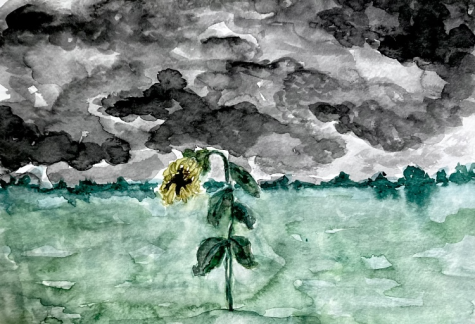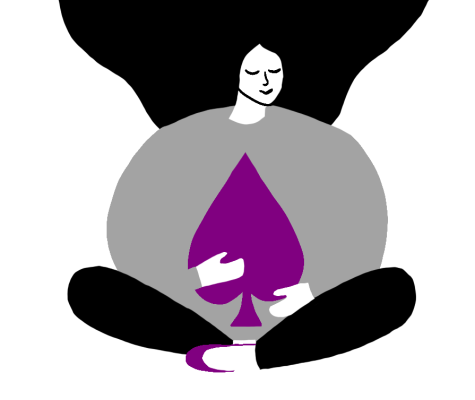Regarding the language of “Free Speech” as distinguished from Hate Speech
December 5, 2017
“…is there no room any more for a child or young person to be a little obnoxious…or provocative, or yes, offensive”
(Erika Christakis, in an email to Yale students in October 2015 responding to a call to exercise sensitivity in Halloween costume choices.)
“We are not asked asking to be coddled…(We) simply ask that our existences not be invalidated on campus. This is us asking for basic respect of our cultures and livelihood”
(An Open Letter from Yale Students to Erika and Nicholas Christakis, Masters of Silliman College)
I open this essay with the now famous case at Yale (I am an alumnus) in October 2015 when the Intercultural Affairs Committee sent a campus-wide email in advance of the Halloween season reminding people to be considerate in their costume choices. Erika Christakis, a lecturer at Yale and a “Master” (a residential faculty member charged with providing a learning environment out of class for students in Silliman College), responded and objected to the email. Thus, the controversy that followed.
This is where we see the language coming into play. There was a vigorous advocacy on the part of free speech advocates, indicating that Christakis could say whatever she wanted and should be constrained by any conventions. The other side was arguing that: “It is not about creating an intellectual space! It is not! … Do you understand that? It is about creating a home here!” (From the “New York Times,” Dec. 7, 2015. The student is unidentified, but appears in a YouTube video that goes viral). The two sides were talking, but they were not in the same conversation. They were concerned about different things, although they were sharing the same space. The arguments on the part of students was not that Christakis could not say what she said or wrote. She did, in fact, write that email. Rather the argument they were making was that you are our residential faculty in the residential college and we expect a certain kind of community. It is important not to forget that this did not occur in the context of a class room or publication in an academic journal. It was within the general communication of campus community.
Therefore, our discussion must begin with what are the purposes of free speech? To give expression to dissident views, to allow for open inquiry, a free exchange of ideas, in the context of an academic institution, we want to advance knowledge without fear that there will be negative repercussions. Indeed, this full academic year at Whitman has been dedicated to the exploration of these themes in several settings and contexts and as we go to press, such an inquiry continues. President Murray has spoken on various occasions about Whitman’s commitment to free speech and has articulated 4 key principles to guide the deliberation this year, most eloquently at the beginning of this academic year at Convocation. An educational institution that limits free speech is not only acting illegally, but also undermines the very purposes of education. This exchange occurs within a residential college setting, so context matter greatly. The second question then must do with: What is the kind of community we want to create? In which the kinds of quest for knowledge we are talking about can occur? This is what the students are saying. At Whitman, the Strategic Imperatives that have been developed to guide the future direction for the college have clearly articulated what kind of community we are working towards becoming:
“Diversity, equity and inclusion are core values of Whitman College. Our mission focuses on educating a broad range of talented students in a college community where everyone can participate fully in the life of the college and experience a sense of belonging…where diversity is woven throughout our cultural fabric: our values, our behavior, our culture”
That then is the kind of community we wish to create. Our speech then is not in the service some abstract idea of what we can and cannot say, rather it is an affirmative reflection of how we are advancing what we believe Whitman to be: A place of intellectual rigor, a place where there is no censorship, a place where the freedom of ideas, a place of learning, a place of meaningful interaction and solidarity across difference and a variety of social identities. A place where a global nomad like me can call “home,” in the way the students at Yale said they wanted Silliman College to be.
I do not believe that these are contradictory values at all. Learning has historically occurred in learning communities, and this presupposes a certain kind of climate to learn. If the key “business of the students here is to learn” as President Murray reminded us during Convocation, then we want to remove any barriers to that business being carried out. This means that simply to claim offense is not enough to suggest that a particular interaction is inconsistent with our values, rather a critical dialogue must occur to clarify, to make the case regarding the claim being made. President Murray’s Convocation speech in August of 2017 examined this issue.
“Silence, and especially silencing others, is antithetical to intellectual inquiry…we want dialogue, not monologue. Listening is as crucial a part of dialogue as talking…We want intellectually responsible speech. Assertions need to be supported with evidence, and other speaker’s evidence needs to be considered.”
It is clear to me that when people marched on the University of Virginia’s campus during the summer, carrying tiki torches and screaming anti-Semitic chants, that that was hate speech. I know that when people who do not have the protections of a certain immigration status are called out by name in a public setting, that that is intended to harm them. I know that when trans people are called out in public and exposed, that that is intended to harm them. That serves no purpose in advancing knowledge or expressing political dissent to better the society. It does NOT mean it is illegal speech. In fact, hate speech is most certainly protected speech. But what purpose does it serve? Does it advance knowledge? Does it free those who are oppressed? Does it build community? I close with some of my favorite words from St. Paul:
“And if I have prophetic powers, and understand all mysteries and all knowledge, and If I have faith, to remove mountains, but do not have love, I am nothing”









